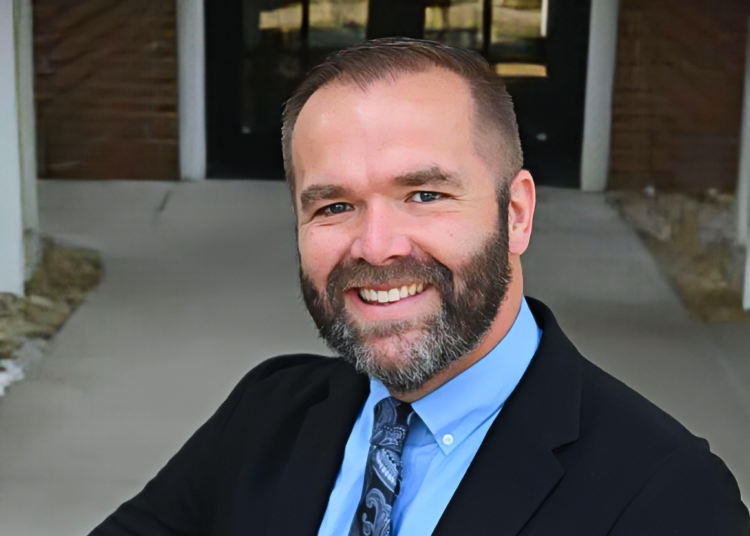Scioto County Commissioner Scottie Powell is speaking out after Portsmouth City Council voted 5–1 to reject a resolution declaring the city a sanctuary for gender-affirming health care. While the debate over the measure sparked weeks of emotional public commentary and packed council chambers, Powell offered a grounded perspective: resolutions don’t change the law — or lives.
“It Didn’t Do Anything”
“City Council did their job,” Powell said. “They voted based on the feedback they received from their constituents.” He emphasized that while he didn’t personally interact with those who rallied for or against the resolution, he respected the process council followed.
But Powell had deeper concerns about the illusion of impact the resolution created. “I didn’t understand the resolution,” he said. “It didn’t do anything. My concern is that someone convinced these folks that if this six-member body passed a resolution, their lives would change. That’s not how policy works.”
He called the effort “artificial,” explaining that the resolution was essentially a symbolic document with no legal authority. “It’s a piece of paper that gives you a feeling for a day,” he said, “but it doesn’t affect real change.”
Powell added that the Scioto County Commissioners likely wouldn’t consider such a resolution either. “We’ve been asked to do symbolic resolutions before — like becoming a ‘sanctuary for gun owners.’ It wouldn’t have changed anything. It’s not how government works.”
Déjà Vu? A Resolution Already Declared Portsmouth Inclusive
Critics of the resolution also pointed out that Portsmouth already passed an inclusivity resolution in 2020. Then-Mayor and current Councilman Sean Dunne, who also introduced this latest measure, declared at the time that the city’s “All America Award” win recognized Portsmouth for being “collaborative, creative, innovative, and inclusive.”
Despite this, Dunne said the 2025 resolution was “necessary to promote inclusivity, equality, and justice for all.” However, the text focused almost exclusively on affirming gender-affirming care, including hormone therapies and surgeries for those experiencing gender dysphoria — a topic that sparked heated debate in the community.
Though Dunne removed references to gender-affirming care for minors in an attempt to broaden support, Powell said that topic likely swayed public opinion. “That’s where people started to have real concerns,” he said.
A Teachable Moment, But No Legislative Power
Powell encouraged supporters of the resolution to stay involved but also to understand the limits of local government. “If you’re upset about gender-affirming care laws, the place to take that fight is the state legislature — your representatives and senators. Not city council,” he said.
He noted that hatred and division ran high on both sides — “unjustified hatred,” he added — for a proposal that ultimately carried no legal weight. “What was it all for? It didn’t do anything.”
Still, Powell said he was encouraged to see young people engaging in local politics, even if it was part of a school project, as some supporters later admitted. “Getting involved is important,” he said. “But learning the process and limits of each level of government is just as critical.”
Commissioner Davis Weighs In
Fellow Commissioner Bryan Davis echoed Powell’s sentiments, praising council for staying focused on urgent, actionable issues, like infrastructure failures and the fallout from the opioid epidemic. “Let’s agree to disagree,” Davis said. “But we have to stay focused on what we can control.”
What’s in the Resolution?
The final version of the resolution read, in part:
- SECTION 1: Portsmouth City Council proclaims the City of Portsmouth a safe haven for all including the LGBTQ+ Community.
- SECTION 2: The City of Portsmouth acknowledges the rights of all persons to access lawful healthcare.
- SECTION 3: This resolution is declared to be necessary to promote inclusivity, equality, and justice for all.
Despite the hopeful language, the actual scope was limited, and did not change any laws or provide any protections beyond what state and federal laws already permit or prohibit.
Gender-Affirming Care: What It Involves
The resolution’s central focus — gender-affirming healthcare — includes medical and psychological treatments for people experiencing gender dysphoria. These may involve:
For transgender women (assigned male at birth):
- Hormone therapy (estrogen and anti-androgens)
- Breast augmentation
- Facial feminization surgeries
- Tracheal shave
- Vaginoplasty (surgical creation of a vagina)
For transgender men (assigned female at birth):
- Testosterone therapy
- Mastectomy (top surgery)
- Hysterectomy
- Phalloplasty or Metoidioplasty (surgical creation or enhancement of a penis)
Non-surgical:
- Mental health counseling
- Legal assistance for identity document changes
These treatments are endorsed as medically necessary by major organizations like the American Medical Association and American Academy of Pediatrics, though they remain controversial in some political and religious communities — especially when minors are involved.
The Bottom Line
Commissioner Powell’s message was simple: don’t confuse symbolism with substance. “If you want real change,” he said, “learn where laws are made, and go there.”
















































































